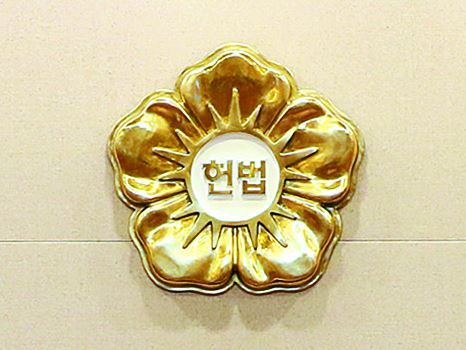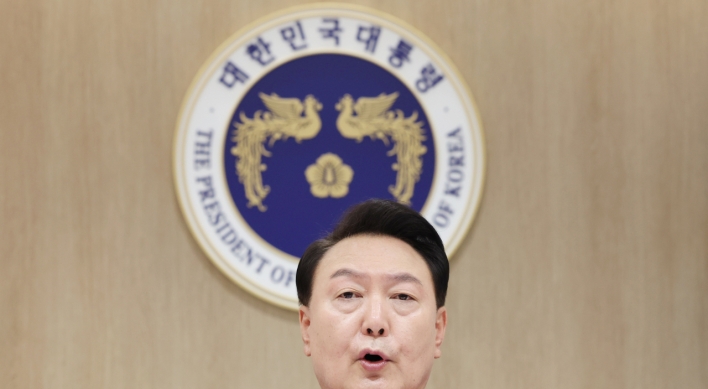Prospects of early constitutional revision dim amid partisan standoff
By YonhapPublished : April 23, 2018 - 21:20
The prospects of an early constitutional revision further dimmed Monday, with the National Assembly paralyzed by a standoff over an escalating opinion rigging scandal.
The ruling Democratic Party had hoped to complete all procedures to pass and promulgate a revision to the national referendum act, a required step towards the constitutional change, by Monday, so as to deliver on its pledge to hold a plebiscite on the charter's amendment at the same time as the June 13 local elections.
But its plan has hit a major snag, as opposition parties demanded its agreement on launching an independent counsel probe into the scandal as a precondition for normalizing the opposition-led parliament.

The main opposition Liberty Korea Party, Bareunmirae Party and Party for Democracy and Peace submitted a joint bill to mandate a special prosecutor's investigation into the scandal involving an influential blogger with alleged ties to a high-profile ruling party lawmaker.
The ruling party remains negative about the special probe, saying it would determine whether or not to accept the independent investigation after the police complete their ongoing probe, which opposition parties have criticized as "too slow and lenient."
Parliamentary Speaker Chung Sye-kyun hosted a meeting with the floor leaders of four parliamentary negotiating blocs to broker an end to their standoff, but failed to reach a breakthrough.
The failure to revise the referendum act was yet another dispiriting setback for the ruling party and a stark reminder of the parliamentary dynamics that make it almost impossible for it to press ahead with any contested bills without the opposition bloc's support.
The ruling party's push for the constitutional amendment has faced a slew of daunting challenges, as the opposition parties opposed the ruling bloc's proposal for the revision as well as its plan to hold a public vote on the revision concurrently with the local elections.
A major bone of contention in the constitutional revision talks is how to address the current concentration of powers in a single leader, which has been blamed for corruption, abuse of power and political polarization.
In line with a government proposal, the ruling party seeks to change the current single five-year presidential term to a maximum of two consecutive four-year terms, and strengthen the rights of the prime minister and National Assembly.
But the LKP argues the ruling bloc's proposal would further strengthen presidential powers. It has advocated a power-sharing model under which the president takes control of national security, diplomacy and other external affairs while the prime minster, to be picked by parliament, controls domestic affairs.
The ruling party opposes the power-sharing scheme, arguing that the dispersion of power could disrupt the management of state affairs, particularly when the country faces a constant security challenge from a provocative North Korea.
The constitutional amendment requires approval from two-thirds of all 293 lawmakers in the unicameral legislature and a majority of voters in a referendum. (Yonhap)











![[KH Explains] How should Korea adjust its trade defenses against Chinese EVs?](http://res.heraldm.com/phpwas/restmb_idxmake.php?idx=644&simg=/content/image/2024/04/15/20240415050562_0.jpg&u=20240415144419)







